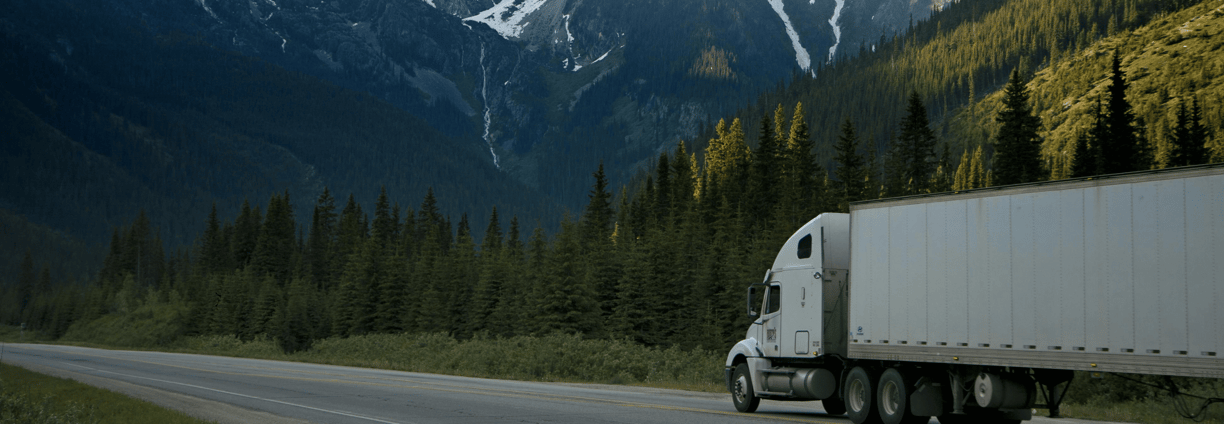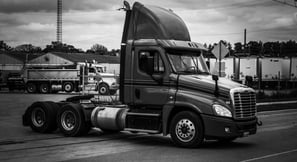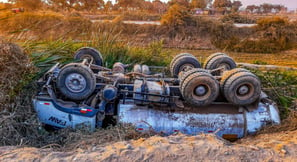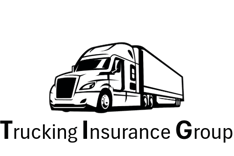

Owner Operator Insurance








Bobtail Insurance
Provides coverage to the truck when it is being driven without a trailer attached, typically during work related activities, such as being under dispatch. Not to be confused with Non-trucking liability (NTL), which only covers your truck for personal use. The coverages seem similar, however, they are very different.
Provides coverage for owner operators who are under permanent lease with a motor carrier. It provides liability protection when your truck is used for non-business purposes, like going to the movies or running to the grocery store. NTL insurance can pay for injuries to other people or damage to their property.
Provides coverage for loss or damage to the property a truck is transporting (the load). Generally, though not always, provided by the motor carrier for leased operators. It should be noted that the coverage forms for cargo insurance are different and some include many exclusions.
Provides an alternative coverage to workers' comp that can help protect your business against the cost of work-related injuries, illnesses, accidents, and fatalities. This can be an affordable way to protect your company against the big cost of occupational accidents to workers and potential resulting employee lawsuits.
Non-trucking Liability
Physical Damage
Occupational Accident


Owner operator insurance provides essential coverage for self-employed truck drivers who own and operate their own trucks. This type of insurance helps protect you in various situations, both on and off the job.


What is owner-operator insurance?
Owner-operator insurance is for an independent contractor that owns and operates their truck for commercial purposes. An independent contractor must maintain owner-operator insurance for protection.
When you are under your own authority, you don’t have company-backed insurance to fall back on in case of an incident. An accident can set a business back financially, but owner-operator insurance can help your losses be as minimal as possible.
What is the difference between owner-operator and authority?
An owner-operator is an individual who is self-employed in commercial trucking. Authority is a legal status given to companies and owner-operators. This status is what allows them to operate as for-hire trucking businesses.
Authority status is only given by the Federal Motor Carrier Safety Administration (FMCSA). Companies cannot transport cargo for hire without authority granted by FMCSA. They must first register with FMCSA to receive their Motor Carrier (MC) number and US Department of Transportation (USDOT) number.
Not every carrier under authority is an owner-operator. They may also be large companies or small businesses. However, every owner-operator needs to have authority to conduct business.
General Liability Insurance
Let’s say an accident occurs where you are liable for harm caused to people or property. Liability insurance is needed to protect you from financial loss and business ruin. Having this coverage in your toolbox can give you much-needed confidence before you hit the road.
For commercial trucking, general liability coverage is required by law. Your clients may even require you to have liability insurance to haul cargo for them.
Physical Damage Insurance
From collisions to natural disasters, unexpected events may occur. You are solely responsible for any damage to your truck, and it can be costly to replace. In the event your truck gets damaged, physical damage insurance can help cover the cost of maintenance or replacement.
Physical damage insurance will begin covering any damage once you’ve hit your deductible with out-of-pocket expenses. This is better than paying for replacement or repairs all on your own.
Cargo Insurance
Every day, you transport precious cargo for your clients. They rely on you to safely carry their cargo, whether general freight or hazardous materials. However, events may occur where the cargo gets damaged, lost, or even stolen. The cost of the cargo can add up, and you do not want to be solely responsible for the full cost.
Cargo insurance will help cover the freight you carry if the goods are lost, damaged, or stolen. There are even additional protections for cargo such as:
Perishable goods or temperature-sensitive items
Undamaged goods that may lose value
Goods that can be salvaged if only the truck is damaged
For commercial trucking, this coverage is required by law. Many of your potential clients may also require you to have cargo insurance before hauling their goods.
Bobtail Insurance
Bobtail insurance is for owner-operators who use their truck without a trailer for personal use. This coverage can sometimes be referred to as “non-trucking liability.” If you plan to use your truck for any personal reasons, you need bobtail insurance.
It does not cover any harm to your truck or cargo. Instead, it covers any damage done to others in an accident where you are at fault. It differs from liability insurance, as bobtail insurance only applies to accidents that occur when you are using your truck for personal reasons.
Occupational Accident Insurance
As an owner-operator, you need to be protected on the job. The above coverages protect against harm to your truck, cargo, or other people and property. Occupational accident insurance, however, provides coverage when you are injured while working.
What coverage does an owner-operator need?
The owner-operator coverages above are highly recommended for independent contractors. There are some coverages required by law – and by potential clients – to operate. However, some factors determine what specific coverage you need.
American Insurance Brokers will help you determine what makes the most sense for you. We help many owner-operators find affordable and reasonable coverage.
Type and Size of Business
The insurance coverage you need as an owner-operator depends on your type of trucking business and its size. When you start small as an owner-operator, your coverage will be pretty basic. Additional coverages will be required as you grow, as there will be more room for error.
Independent Owner-Operator
If you only have one truck, the owner-operator insurance coverages listed above will suffice.
Small Fleet Owner-Operator
As you add on additional trucks and employees, your coverage will need to expand. For instance, workers’ compensation will be crucial in protecting your business in the event of injuries and lawsuits.
Large Fleet Owner-Operator
Large-scale operations require additional coverage. As your fleet grows, the losses may become greater. Large fleet owner-operators can benefit from extra protections such as
State Regulations
At American Insurance Brokers, we help owner-operators across the South understand their state’s commercial trucking regulations. Below are a few things to keep in mind when navigating your state’s requirements.
Minimum Liability Limits
Owner-operators in certain states are required to carry a certain amount of coverage. These amounts can range from $500,000 to $1 million, depending on the state in which you operate.
Workers’ Compensation Insurance
Owner-operators who have employees may be required by their state to carry workers’ compensation insurance. Each state has its requirements to protect employees in the event of injury to themselves and their livelihood.
Federal Regulations
The Federal Motor Carrier Safety Administration (FMCSA) has a special interest in improving the safety of commercial trucking nationally. They are also responsible for giving for-hire truckers authority to operate. For owner-operators, this means you are required to follow their guidance.
FMCSA has special requirements as it relates to insurance. They require liability insurance minimums to cover any harm resulting from trucking accidents. By working with American Insurance Brokers, you’ll have a team that will help you understand these minimums.
Why do you need to get a quote as an owner-operator?
Understanding owner-operator insurance is crucial in keeping your business afloat. The transportation of cargo across state lines carries risk, and you do not want to be solely responsible for any harm. The consequences can be very costly.
Coverage in the event of an accident also carries an expense. You need to be able to justify owner-operator insurance costs as an independent contractor. We believe in providing our owner-operators with information that helps them make educated, financially responsible decisions. Reasonable coverage at an affordable price can help your business remain a success for years to come.
When shopping for owner-operator insurance quotes, here’s what to keep in mind.
Trucking Insurance Group, Inc.
1717 Main Street, Ste 3011
Dallas, TX, 75201
(214) 817-8127
sales@truckinsgroup.com
© 2025 Trucking Insurance Group, Inc. | All rights reserved |


Get A Quote
Trucking
Owner Operators
Captive Options
Dump Truck
Navigation
Contact Us
Get A Quote
Trucking Forms
Insurance Filings
Navigation
Contact Us
Get A Quote
Trucking Forms
Insurance Filings
